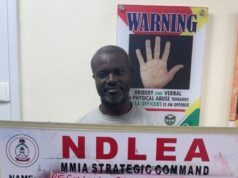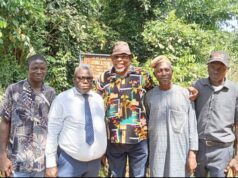By Editor
The Civil Society Legislative Advocacy Centre (CISLAC), the national chapter of Transparency International Nigeria, has expressed concern over Nigeria’s worsening security situation, particularly the recurrence of attacks on schoolchildren and the strain on the country’s security institutions.
The CISLAC’s Executive Director and Head of Transparency International (Nigeria), Mallam Auwal Musa Rafsanjani, warned against what he described as an “uncoordinated and politicised” security strategy by the government which is deepening instability and leaving millions of citizens, especially children, exposed to avoidable danger.
He noted that the Nigerian Army remains heavily deployed across nearly all states despite constitutional provisions that place primary responsibility for internal security on the police, the Nigeria Security and Civil Defence Corps (NSCDC), and the Department of State Services (DSS).
Rafsanjani attributed security sector corruption, the overreliance on the military to years of neglect, inadequate equipment, weak welfare systems, and poor cooperation among security agencies, which he said have collectively weakened the country’s overall security response.
The CISLAC boss also condemned the recent abductions in Kebbi State and the kidnapping of pupils of St. Mary’s Catholic Primary and Secondary Schools in Niger State, describing the attacks as direct assaults on education and the future of Nigerian children.
He said the abductions further worsen the country’s troubling rate of out-of-school children and undermine children’s dignity and safety.
Rafsanjani who criticised what he called the diversion of police officers to politicians and private individuals at the expense of vulnerable communities and schools, argued that the commercialisation of police roadblocks has turned security points into centres of extortion rather than zones of protection.
He urged the authorities to dismantle such roadblocks and redeploy officers to where they are genuinely needed.
Expressing concern about the increasing politicisation of law enforcement, he cited recent incidents in Abuja in which police officers were seen supporting rival political factions, as well as cases where large numbers of officers were assigned to individuals instead of communities.
According to him, such developments reflect weakened police leadership and embolden irresponsible political behaviour.
Rafsanjani also urged the government to adopt effective early warning and early response mechanisms, noting that many attacks occur despite clear warning signs.
He further questioned the effectiveness of the Nigeria–U.S. Bi-National Commission, a platform created to strengthen cooperation on security, governance, trade, and investment, arguing that Nigeria must address its internal governance and security gaps before expecting external partnerships to yield meaningful results.
Discover more from TheTimes Nigeria
Subscribe to get the latest posts sent to your email.









